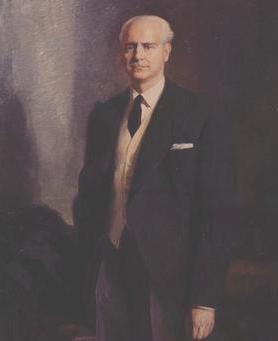Difference between revisions of "Romerism"
| Line 40: | Line 40: | ||
== Romerist Theorists == | == Romerist Theorists == | ||
| + | |||
| + | [[File:AlejandroKarađorđević--storyofredcrossu00berruoft.png|thumb|right|[[Romero I of Creeperopolis|Romero I]].]] | ||
| + | [[File:FOTOGRAFIA DE JOSE ANTONIO PRIMO DE RIVERA 2.jpg|thumb|right|[[Antonio Sáenz Heredia]].]] | ||
| + | [[File:Serrano Súñer.jpg|thumb|right|[[Ramón Serrano Suñer]].]] | ||
*[[Enrique Agramonte Leoz]] | *[[Enrique Agramonte Leoz]] | ||
Revision as of 00:33, 2 July 2020
| Part of a series on |
| Romerism |
|---|
 |
| Categories: |
Romerism (Creeperian Spanish: Romerismo) was the political ideology of the Catholic Imperial Restoration Council (also called the Romerists) during the Creeperian Civil War, and currently, of the Creeperian Initiative (officially: Nationalist Creeperian Catholic Royal Initiative and the Pro-Fatherland Front of Unification) as well as Initiative branches in El Salvador and the Papal State. Under the leadership of Romero I and Romero II, it largely became an authoritarian, Catholic, conservative ideology connected with Creeperopolis and its protectorates.
Romerism places a strong emphasis on Creeperian Catholic religious identity. Falangism emphasized the need for total authority, hierarchy, and order in society. Romerism strongly emphasizes anti-communism and pro-capitalism and is generally anti-democratic. Romerism promoted the revival of a Catholic Creeperopolis due to the ongoing civil war against the secular/atheist National Council for Peace and Order, commonly called the Miguelists.
Romerism has attacked the political left as its "enemy", especially the far-left. The Creeperian Initiative declares itself Far-Right, with many exiled Creeperian communists branding it as fascist.
Etymology
"Romerism" is named after Creeperian Emperor Romero I who lead the Catholic Imperial Restoration Council during the Creeperian Civil War from 1933 to 1946. The ideology he helped establish was named in his honor.
Definitions
Position in the Political Spectrum
History
Pre-Civil War
Civil War
Post-Civil War
Tenants
Nationalism and Racialism
Authoritarianism or Totalitarianism
Capitalist Economics
Age and Gender Roles
Action
Criticism
Anti-Democratic and Tyrannical
Romerist Theorists
- Enrique Agramonte Leoz
- Julio Alda Miqueleiz
- Tomás Alemán Prats
- Benito Aparicio Capmany
- Manuel Arboleda Guillén
- Hugo Bánzer Suárez
- Ignacio Barrios Prats
- Óscar Benavides Larrea
- Adolfo Cabañeras Moreno
- Alfonso Cabañeras Moreno
- Emmanuel Cabañeras Videla
- Augusto Cabañeras Gutiérrez
- Armando Calderón Sol
- Carlos Castillo Armas
- Eusebio Cordón Cea
- Sancho Dávila Fernández
- Francisco Dueñas Díaz
- Macos Espiga Mina
- Pedro Espiga Ordóñez
- Enrique Figueroa Guerrero
- Rubén Franco Alcabú
- Nazaret García Seco
- Alfonso García Valdecasas
- Alexander Giammattei Falla
- Martín Gutiérrez Sánchez
- Carlos Hernández Videla
- Máximo Illescas Freixa
- Elías Mancebo Muñoz
- Josué Manzanedo Seco
- Adolfo V Martínez Escobar
- Alfonso VI Martínez Escobar
- Romero III Martínez Escobar
- Romero I Martínez Galdámez
- Romero II Martínez Guerrero
- Alexander II Martínez Hernández
- Adolfo IV Martínez Jiménez
- Alexander I Martínez Jiménez
- Alfonso V Martínez Jiménez
- Armando Molina Barraza
- Joaquin Noboa Chicote
- Adolfo Rivera López
- Armando Rodríguez Vera
- Antonio Sáenz Heredia
- Paúl Sáenz Mina
- Luís Sánchez Cerro
- Alexander Sánchez Molina
- Ramón Serrano Suñer
- Adán Tamayo Navarro
- Juan Torres González
- Óscar Únzaga Vega
- Rafael Videla Redondo



